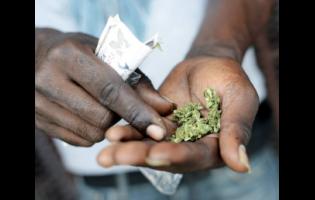When words hurt - Researcher relates how body image nicknames shape insecurity
In Jamaica, many children are affectionately given nicknames by their mothers that highlight physical traits -- names like 'Big Head', 'Blackie', or 'Fatty'. While often said without malice, these names can leave lasting scars, particularly when it comes to body image.
At the recent 'Dying to Be Beautiful' symposium held at The University of the West Indies, Mona, researcher Keisha C. Samlal shed light on this phenomenon, connecting these experiences to struggles with self-esteem and identity among Afro-Caribbean women.
"Have any of you ever had a mother or mother-figure comment on your body or clothing?" Samlal asked. The audience, predominantly women, seemed to connect instantly, appearing to be a universal experience.
Drawing from her extensive research into 'fatness' and identity among Afro-Caribbean women, Samlal unpacked how mother-daughter relationships influence self-esteem, particularly when it comes to body image. For some, mothers were a refuge from societal pressures, while for others, they became the source of those pressures.
One such story came from Tanya, a Trinidadian participant, whose mother was her unwavering support.
"Her mother was her anchor," Samlal explained. "When classmates bullied her, her mother didn't pressure her to lose weight. Instead, she offered spiritual encouragement, telling her, 'You are blessed in this body. God gave you this body for a reason.'"
Tanya's sense of confidence became a legacy she passed on to her own daughter, defending her against similar bullying from a teacher.
But not all mother-daughter dynamics were so nurturing. Another participant, Carla, spoke of the wounds inflicted by her mother's hurtful remarks about her body.
"Her mother outright told her she didn't deserve the man she was dating because she was fat," Samlal recounted.
The emotional toll of such comments led Carla to take all sorts of medication and adopt weight-loss practices that ultimately resulted in her hospitalisation.
Samlal also highlighted the complex role of extended maternal figures, including grandmothers and aunts. Natasha, another participant, credited the "village" of women who surrounded her in helping her navigate hurtful comments from teachers and peers.
"These women reminded her of her worth, lifting her out of the negativity," Samlal noted.
However, the downside of these familial ties showed that the pressure to conform to beauty standards often begins at home.
Leah, who gained weight during the COVID-19 pandemic, shared how her mother's constant critiques of her eating habits and body shape crushed her confidence.
"Her mother even called her a mackerel," the researcher said.
"Women internalise what I call 'fat talk', comments about weight that stick with us long after they're said. Even when mothers mean well, these remarks often mirror societal pressures," said Samlal.
A mother's words can either build a young woman's confidence against societal beauty standards or reinforce the same insecurities these standards create.
"Our first teachers in beauty and body standards are often the women who raise us," Samlal concluded. "We must critically examine these relationships to create healthier narratives for the next generation."




































